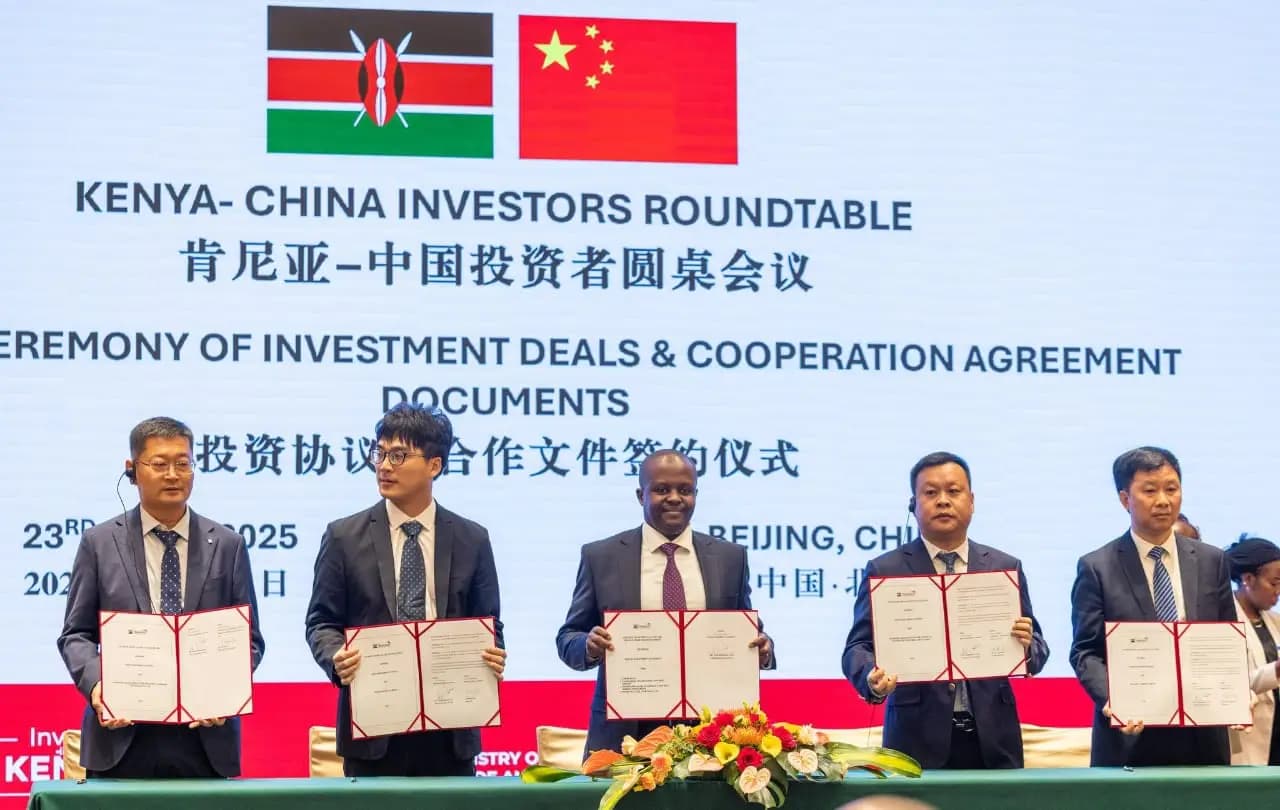We're loading the full news article for you. This includes the article content, images, author information, and related articles.
Kenya seeks Chinese capital and tech to build agro-processing plants and lift export earnings under AfCFTA.

Nairobi, Kenya — In a bid to accelerate agro-industrial growth, the Kenyan government is extending compelling SEZ tax incentives to Chinese investors targeting value addition in tea, coffee, leather and meat industries.
Under Kenya’s Special Economic Zone framework:
SEZ enterprises are fully exempt from VAT and import duties; locally supplied goods incur 0% VAT.
Corporate tax breaks: 10% standard CIT for the first 10 years, rising to 15% for the next 10, then 30% thereafter.
Exemptions also apply to stamp duty and withholding taxes on dividends, royalties, and property transfers.
Agriculture Principal Secretary Paul Ronoh confirmed that the government is courting Chinese investors to establish local processing facilities for Kenya’s hallmark exports: tea, coffee and horticultural produce.
Kenya aims to reduce raw-material exports and retain profits locally by supporting end-to-end processing—from roasting and packaging to flavored teas and by‑products like coffee husk charcoal and furniture.
The leather and meat sectors face similar transformation opportunities:
Kenya exports over 90% of its leather as low‑value raw hides—worth around USD 94 million annually—but misses out on billions in added value.
Government initiatives are pushing for investment in modern slaughterhouses, tanneries, and leather-goods parks to unlock $150–250 million in GDP gains and create jobs.
Kenya currently hosts over 500 Chinese firms, with Sh106.7 billion (~USD 800 million) pledged by seven companies in 2025 to boost agriculture, manufacturing, and tourism.
China has committed up to US$430 million in agro-processing projects, including poultry farms and agrochemical parks. These deals pave the way for deeper engagement in value-added industries.
Chinese business groups from Shenzhen are also exploring Kenya’s SEZs, drawn by regional trade access, tax holidays, and opportunities in agro-processing and manufacturing.
Boosting export earnings: By processing raw tea, coffee, hides or meat domestically, Kenya stands to retain significantly more value.
Job creation: New facilities and industrial parks will generate employment in rural and urban zones.
Economic diversification: Aligned with Kenya’s Bottom-Up Economic Transformation Agenda (BETA) and Vision 2030 objectives to raise manufacturing’s GDP share.
|
Sector |
Incentives & Opportunities |
|---|---|
|
Tea & Coffee |
Processing plants, roasting and packaging, value chain diversification |
|
Leather & Meat |
Tanning, footwear and goods parks, modern abattoirs, export quality products |
|
SEZ Benefits |
VAT & import duty exemptions, corporate tax holidays, withholding tax relief |
|
Partnership Edge |
Access to AfCFTA markets, trade facilitation, tech and machinery transfer |
With incentives structured to minimize upfront costs and maximize profit retention, the government is positioning Kenya’s tea, coffee, leather, and meat industries as ripe opportunities for Chinese investors. By enabling local value addition under SEZ regimes, Kenya seeks not only to upscale its export profile but also to deepen industrialization and inclusive economic growth.
Keep the conversation in one place—threads here stay linked to the story and in the forums.
Sign in to start a discussion
Start a conversation about this story and keep it linked here.
Other hot threads
E-sports and Gaming Community in Kenya
Active 9 months ago
The Role of Technology in Modern Agriculture (AgriTech)
Active 9 months ago
Popular Recreational Activities Across Counties
Active 9 months ago
Investing in Youth Sports Development Programs
Active 9 months ago